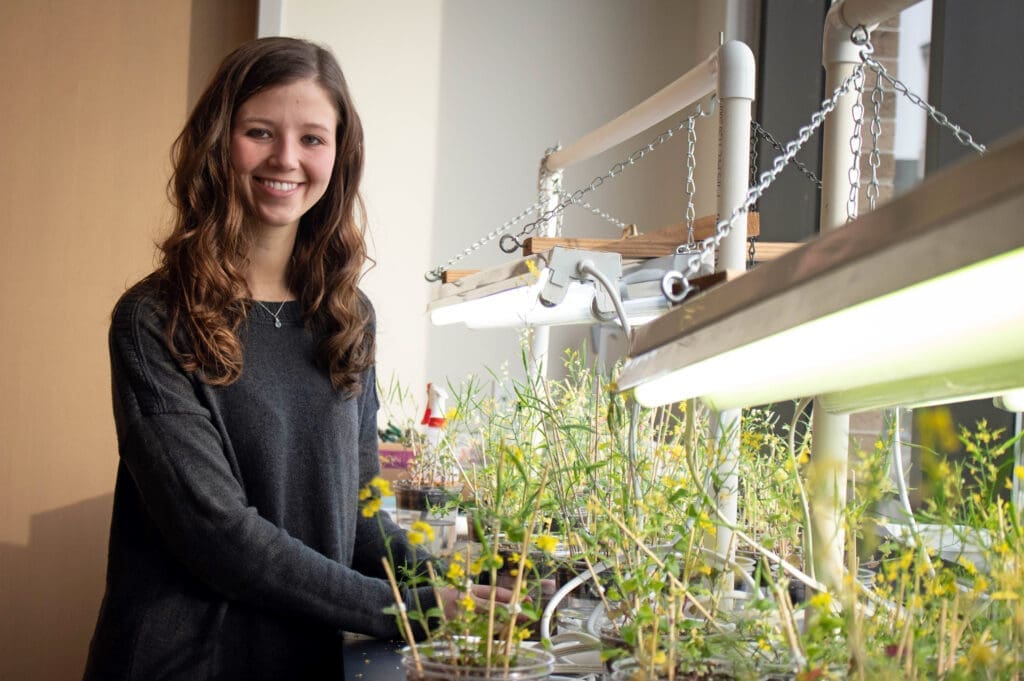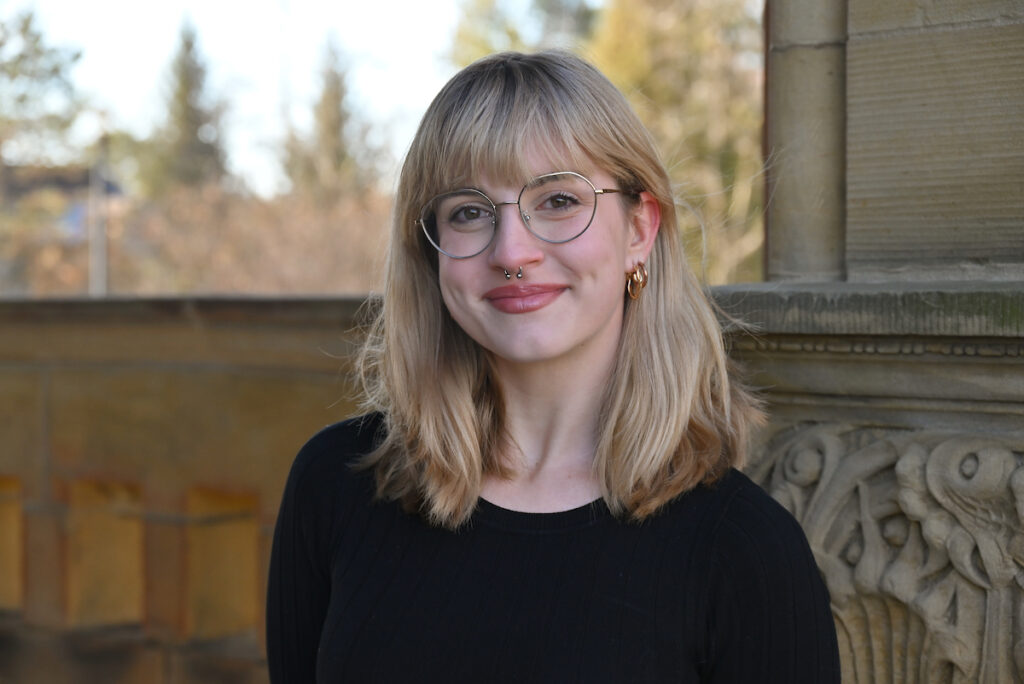Environmental Science (BS)
See the World and Save the World
- Available as
- Major
- Degrees/Options
- Bachelor of Science
- Length
- 4 years
- Locations
- Fort Wayne
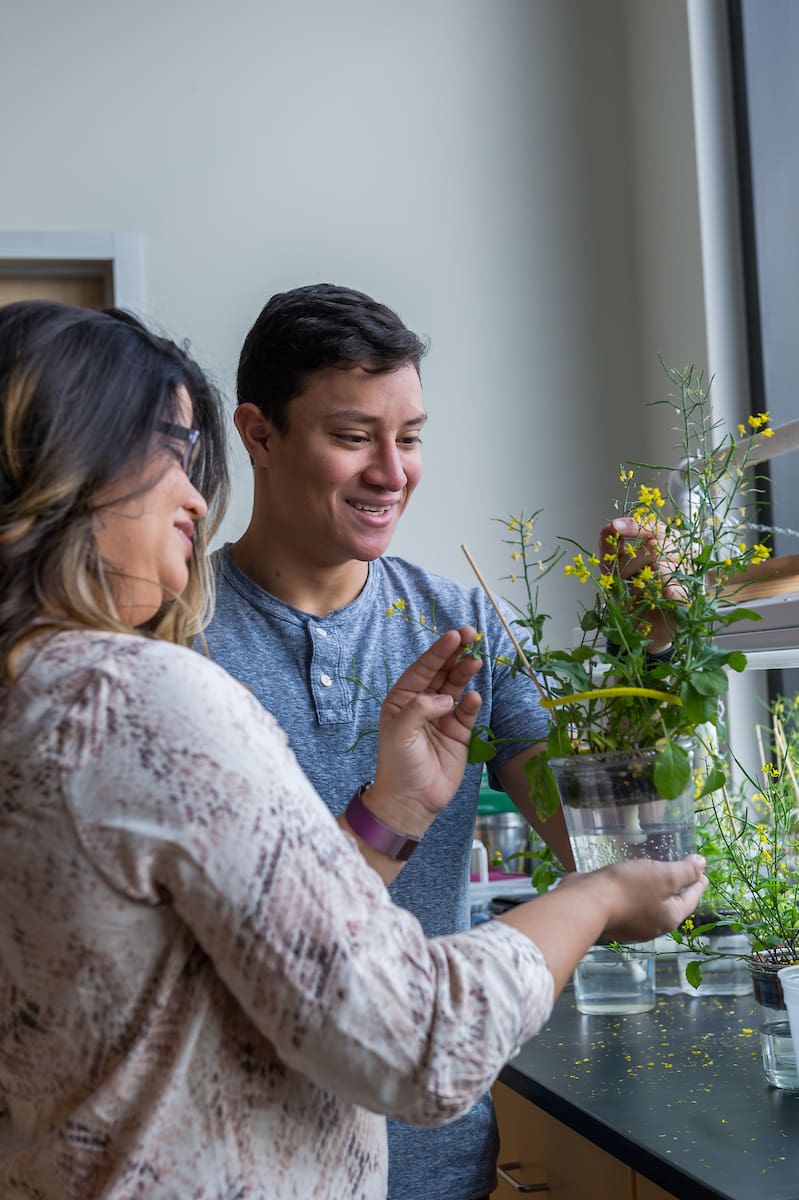
Why Study Environmental Science?
If you’re passionate about the planet, you might enjoy a career dedicated to solving some of its biggest challenges — and making it a better place to live.
Job opportunities in environmental science and technology are rapidly growing, especially in the areas of protection, remediation, and food and agriculture. The increased interest in sustainability has even led to the introduction of subfields and positions that didn’t exist a decade ago.
To prepare for rewarding and meaningful work in conservation and sustainability, major in environmental science to build the scientific foundation and practical skills you’ll need.
100%
Class of 2022 career success rate for our environmental science graduates
$78,980
Median wage for environmental scientists in 2023
BLS.gov
80,500
number of jobs for environmental scientists and specialists in the U.S.
BLS.gov
Why Saint Francis for Environmental Science?
During your first year as an environmental science major, you’ll head into the woods, tap a maple tree, cook the sap, and process maple sugar. This is both delicious and an indication of the active learning you’ll experience throughout your time at the University of Saint Francis.
Broaden your knowledge, expand your skills, and become more marketable for a range of environmental science and technology careers with one of three concentrations:
Conservation Biology: If you’re looking for a career spent outdoors, our concentration in conservation biology may be ideal for you. You’ll spend plenty of time outdoors learning about Planet Earth: plant life, wildlife, endangered species, and water management practices.
Sustainable Food Systems: With a focus on urban agriculture, this concentration focuses on cultivating sustainable practices. You’ll visit local farms and manufacturers to learn about cutting-edge operations, and you’ll learn even more when you intern in this growing field.
Liberal Arts: This concentration gives you a broader look at environmental science. You’ll combine chemistry, biology, and physical science in issues such as water pollution. Your final project will give you a chance to tackle a real-world problem affecting our community.
Hands-On Learning: The World is Your Classroom
As you prepare for careers in conservation, wildlife, restoration ecology, sustainable agriculture, or water management at Saint Francis, you will have the opportunity to:
Create and Innovate with Project-Based Classes
Environmental science majors at Saint Francis have built rain gardens and bird gardens. They’ve created nature trails, written trail guides, and led hikes.
Participate in Field Research in the U.S. and Beyond
Travel with professors, assist with ongoing research, and explore a range of habitats and wildlife species on study trips to places like the wildlands of central Wisconsin or southern Appalachia.
Gain Professional Experience While Gaining Credit
We’ll help you find an internship site (or two) that matches your career interests! In fact, many regional environmental companies seek out Saint Francis students to fill internship positions. A few recent notable sites include:
- LC Nature Park
- Thomas More College Biology Field Station
- SevenGen
- Soarin’ Hawk
- Lindenwood Nature Center
- Eagle Marsh/Little River Wetlands Project
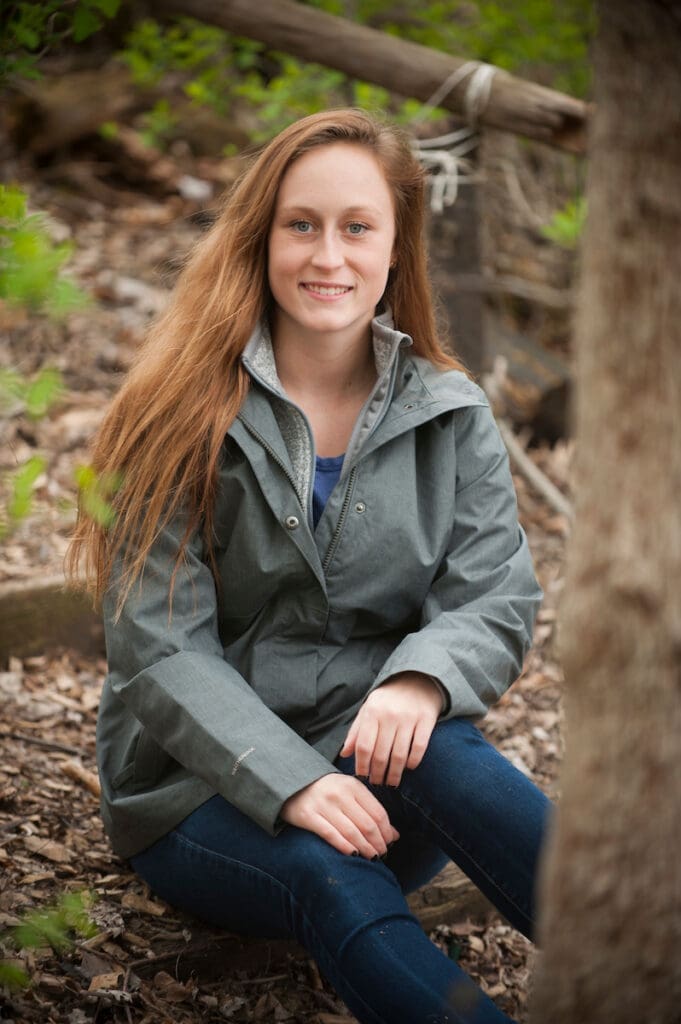
“The work I’m doing now in marine biology is the direct result of my Saint Francis research experience. I spent one summer studying river systems in Kentucky and another studying dolphins in Florida. I credit my Saint Francis professors, who invited me to participate in their own research and then helped me find opportunities that matched my interests.”
Emily Richardson ’14 Went on to earn a Ph.D. at Monash University in Australia
“My internship experience at SevenGen has given me exposure to many different aspects of environmental consulting services and added greatly to my education, which I believe has prepared me for a strong future in the environmental field.”
Madison (Young) Pirte ’20 HSE Consultant, SevenGen
“Saint Francis is so special. Being surrounded by peers and professors who see greatness in you and will push you to be your best has helped me achieve things I never thought possible. My career is taking off way before I graduate. The connections I’ve made here are a blessing.”
Lana Thompson ’26 Biology and Environmental Science double major
Nearby Nature
From old-growth forests to bendy, glacier-carved waterways, our region of Indiana is home to diverse flora, fauna, and landscapes. While you’re at Saint Francis, you’ll have a chance to venture out into woodlands, wetlands, and other nearby natural areas, such as Lindenwood Nature Preserve, Mengerson Nature Reserve, Fox Island County Park, Eagle Marsh, and Spring Lake Woods and Bog.
Faculty and Facilities
Our faculty members are active researchers in a range of environmental science areas; not only do they share their knowledge and experiences with our students in the classroom, but they also give our students plenty of chances to assist with their research.
Achatz Hall of Science to Achatz Hall of Science and John and Toni Murray Research Center was designed with a respect for creation in mind — green and sustainable. You will find state-of-the-art science and ecology labs on campus, and you’ll also discover our vibrant greenhouse and restored prairie, both of which give you plenty of opportunities for hands-on learning.
Campus and Community
Organize Earth Day events. Build brush piles for wildlife. Restore native grasses to our oak savanna. Work in our campus greenhouse. These are just a few of the educational and awareness events you can be part of when you join the Saint Francis Eco Club, a student organization that focuses on environmental issues on campus and in the local community.
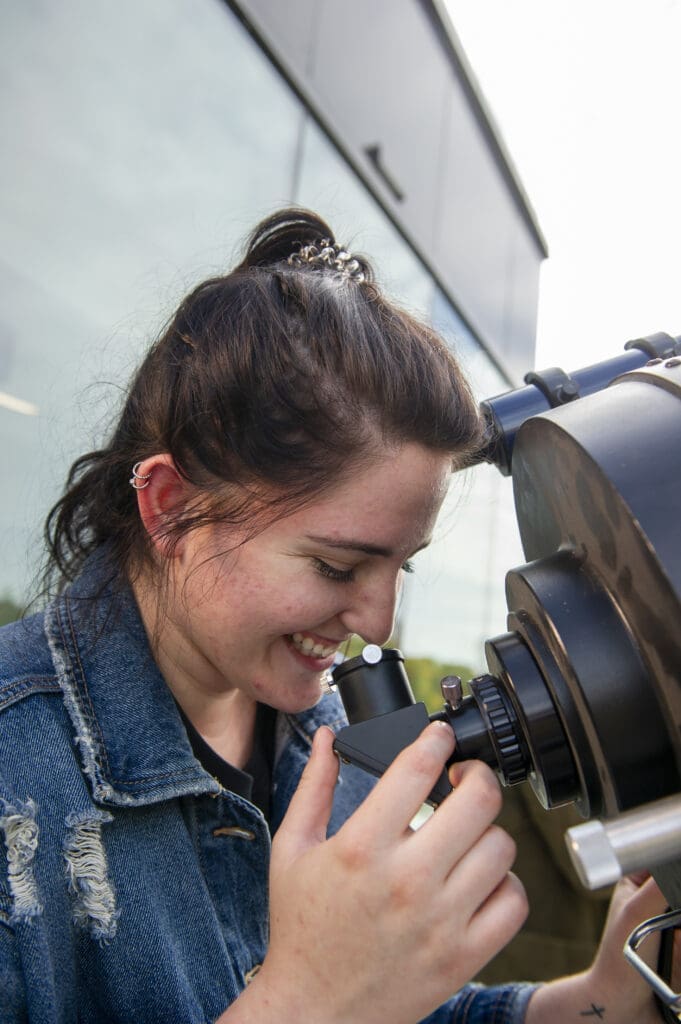
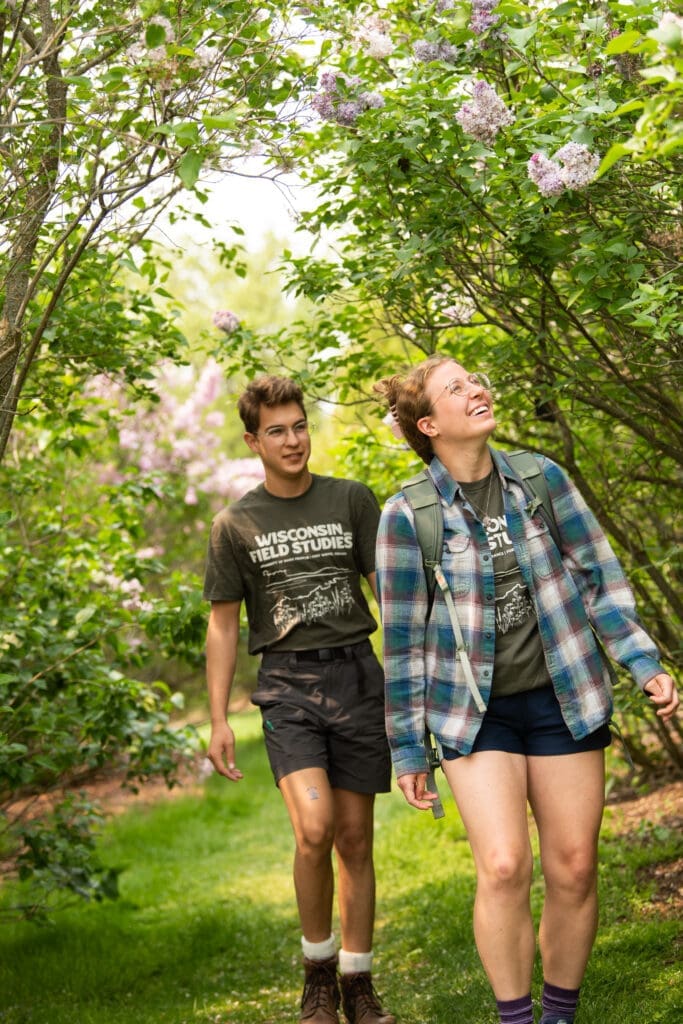
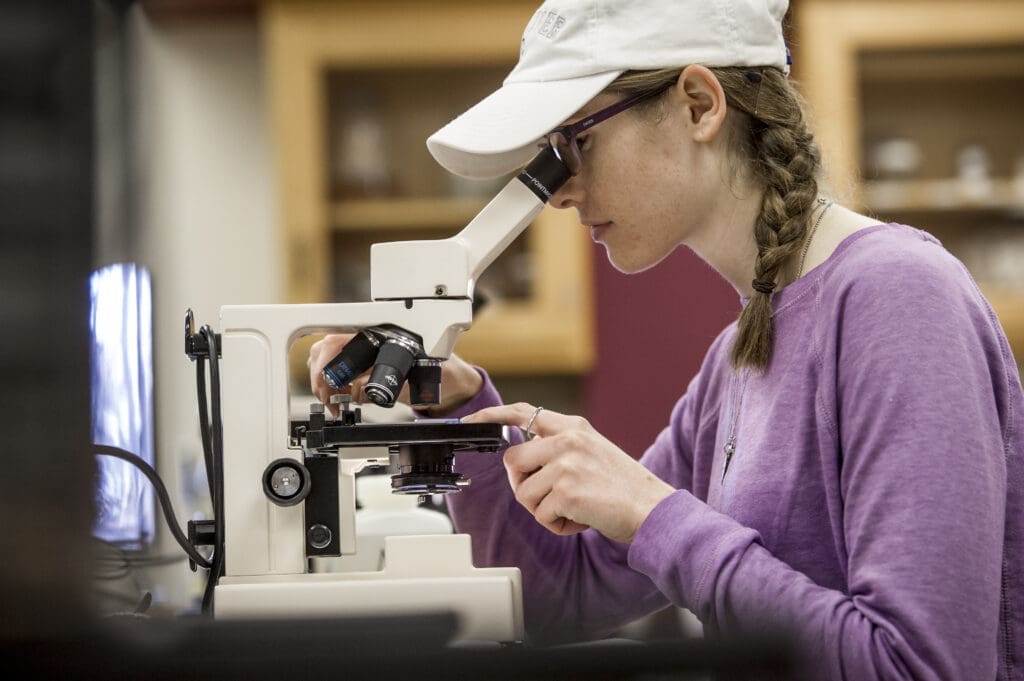
What Can You Do With a Degree in Environmental Science?
With an environmental science or sustainability major, you’ll find opportunities ranging from agriculture and government agencies to parks and wildlife management. You might work in a lab, office, or food production setting or choose to earn your living by spending as much time outdoors as possible.
Here are a few example positions that might interest you:
- Animal care and service workers
- Naturalists
- Environmental remediation/clean-up specialists
- Environmental science compliance inspector
- Camp directors
- Conservation land managers
- Soil and water conservationists
- Hydrologists
- Urban foresters
- Community educators
- Environmental health and safety specialists
- Food science technicians
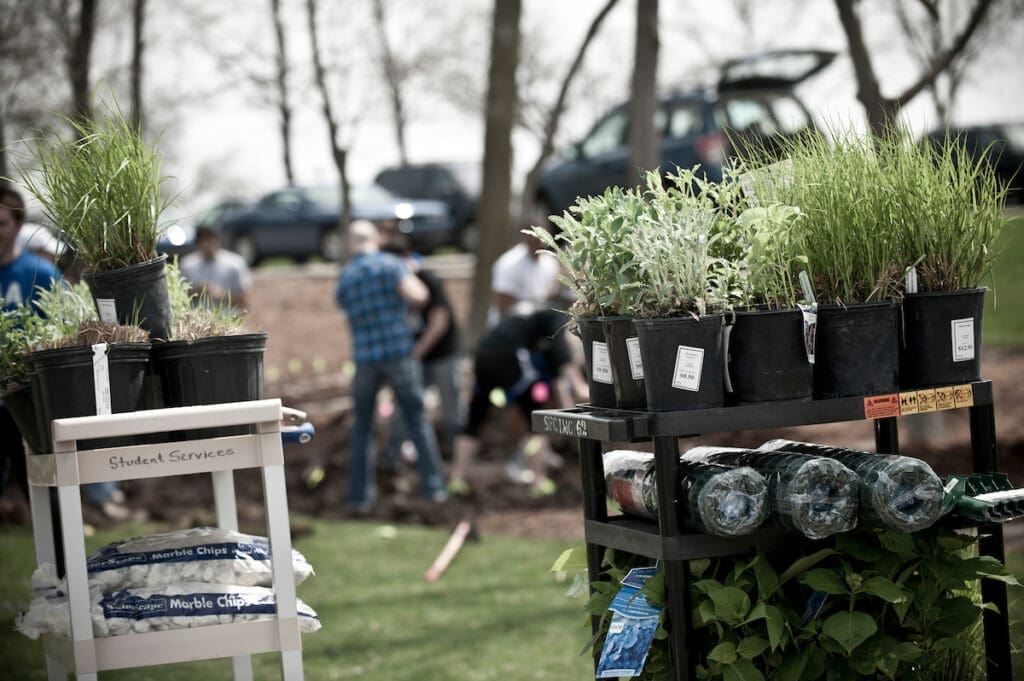
Where You’ll Find Our Graduates
Saint Francis graduates have found environmental science and technology careers at places such as:
- ACM Engineering and Environmental Services, Inc.
- A&L Great Lakes Laboratory
- Allen County Department of Health
- City of Fort Wayne City Utilities
- Environmental Works
- Fort Wayne-Allen County Department of Health
- Indiana Department of Natural Resources
- Raytheon
- Science Central
- SevenGen
- Texas State Aquarium
Grad School and Other Opportunities
If you have an interest in natural sciences research, public health, or advanced positions in environmental engineering/geoinformation systems (GIS), you might consider pursuing a graduate and doctoral degree. Saint Francis alumni who’ve taken that path have gone on to programs such as:
- Purdue Fort Wayne (Public Affairs)
- Purdue University (Ph.D. in Earth, Atmospheric & Planetary Sciences)
- Monash University, Australia (marine biology)
The University of Saint Francis also welcomes many alumni back to campus for its related graduate programs, including an MBA with a focus on sustainability.
